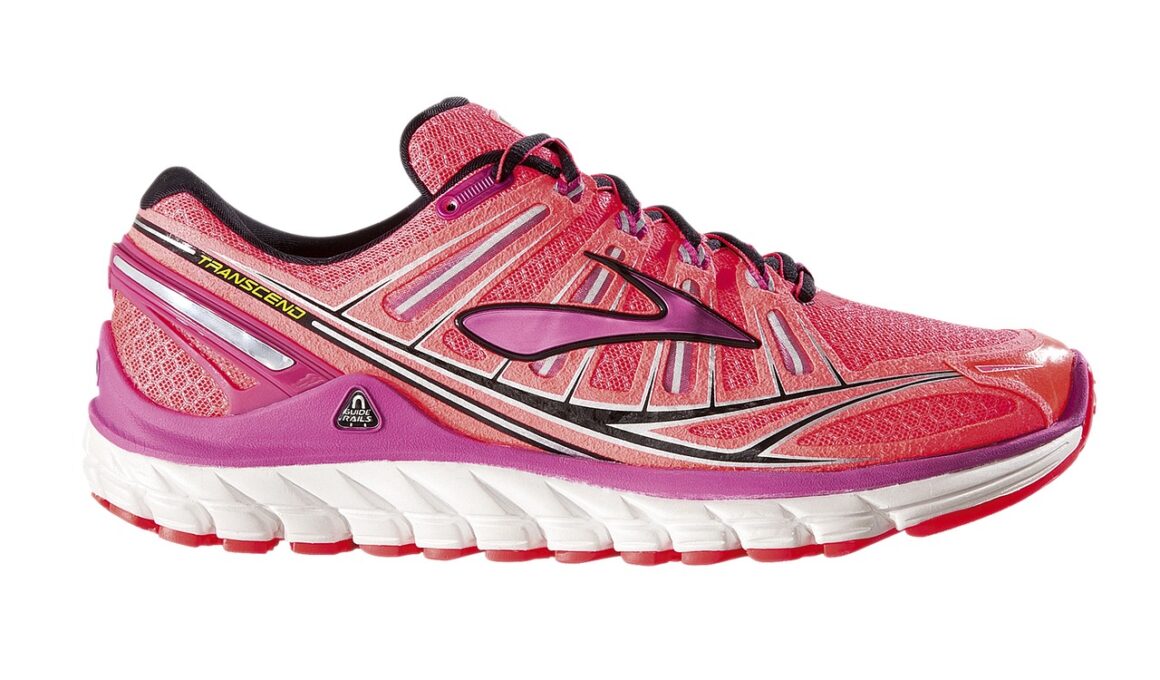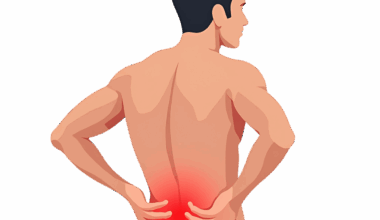Functional Fitness Tips for Parents of Active Teens
Encouraging an active lifestyle for teens is essential in today’s digital age. As parents, you can lead the way by integrating functional fitness into their routine. Start by emphasizing fun activities that utilize their natural curiosity and energy. Consider engaging your teens in sports or intricately-designed workouts that promote teamwork and serve as a perfect bonding opportunity. This dynamic method not only boosts their physical fitness but also enhances social interactions, vital for their development. Aim to make fitness a family affair. Organize family challenges, such as hiking or biking together during weekends, which introduce fitness in an enjoyable manner. Involve your teens in planning these activities to ensure their interests are represented. Besides physical fitness, it nurtures decision-making and organizational skills. Moreover, discussing the long-term benefits of functional fitness, like improved strength and coordination, can inspire them to make healthier choices as they transition into adulthood. Open conversations about the postures and techniques involved in their preferred activities will boost their confidence and understanding. Encourage them to set personal goals and celebrate their achievements, no matter how small, as this will motivate them to strive for progress.
Incorporating variety into workouts is crucial for keeping your teen engaged. Introduce different forms of functional fitness, such as bodyweight exercises, resistance training, or even dance classes to keep their routines exciting. This variety combats boredom and fosters curiosity about different fitness genres. Additionally, encourage them to try outdoor activities like climbing or martial arts, which promote essential life skills while improving strength and flexibility. Another effective strategy is to use technology as a tool for motivation. Fitness apps or trackers can make workouts feel like a game. Set fitness challenges or milestones that encourage consistency and make progress trackable. This can also serve as an excellent avenue for healthy competition among friends, enhancing motivation and providing social interaction opportunities. Remember to celebrate achievements; this positive reinforcement will reinforce their dedication. Moreover, educate them about body awareness, posture, and breathing techniques. Fostering this understanding will not only enhance their performance but also minimize injury risks. Teaching them to listen to their body’s signals will help them differentiate between pushing limits and overexertion, which is crucial for sustaining a long-term fitness journey.
Importance of Nutrition in Functional Fitness
Nutrition is a critical component that should complement any fitness routine, especially for your active teens. Proper nutrition fuels their bodies, enabling them to perform optimally during workouts. Encourage them to consume a balanced diet rich in carbohydrates, proteins, healthy fats, vitamins, and minerals. Education plays a significant role here; teaching them about meal planning and healthy choices empowers them to make informed decisions. You can involve your teen in grocery shopping or meal preparation to enhance their knowledge of nutrition. Additionally, inform them about the timing of their meals in relation to their workouts. For instance, consuming a mix of carbs and protein before and after workouts can significantly enhance recovery and performance. Hydration is similarly important; remind them to drink water regularly, encouraging habit formation for better health. Preparing healthy snacks is a fun way to engage your teen in making healthier choices while satisfying their cravings. Including a variety of colorful fruits and vegetables in snacks enhances their nutrient intake. By creating a nutritious home environment, you positively influence your teen’s habits, setting healthy foundations for their lifelong nutritional choices.
Establishing a supportive environment at home can significantly impact your teen’s fitness journey. Your encouragement can motivate them to be more consistent and develop a positive relationship with physical activity. Displaying a positive attitude towards fitness not only inspires them but also fosters a culture of health in your home. You can lead by example; make time for your workouts and share your fitness goals with them. This not only promotes accountability but also encourages discussion and collaboration around fitness topics. Creating an inviting space for exercise at home, such as a designated workout corner, motivates teens to stay active. This space can include their favorite equipment or even a yoga mat. Remind them frequently that fitness is not only about aesthetics but also about feeling good and improving their physical and mental health. Establish regular family fitness times, where routines or leisure activities can be practiced together, embedding a sense of commitment. Engage them further by evaluating what works best for their bodies, and don’t shy away from discussing the challenges they may face in their active lifestyle. Establishing an open dialogue promotes trust and ensures they feel comfortable sharing their experience.
Incorporating Functional Fitness Techniques
When introducing functional fitness techniques, making them relatable can enhance your teen’s understanding and engagement. Focus on exercises that mimic daily life movements, ensuring the workouts remain practical and functional. Count activities such as squats, lunges, and push-ups as fundamental building blocks. Create routines that include balance, strength, and agility exercises, integrating different muscle groups like core, legs, and arms. These movements can significantly improve your teen’s overall body coordination, preparing them for various physical challenges ahead. Not only do these exercises contribute to athletic performance, but they also promote better posture and reduce injury risk. As teens engage in active sports, knowledge and proper execution of functional techniques become crucial. Consider enlisting a qualified instructor or trainer to guide them. This professional guidance ensures they develop the correct form and techniques. It also provides an additional layer of safety during their workouts. Encourage them to join classes or clubs that emphasize these skills, allowing them to meet peers with similar interests. Providing a network strengthens their fitness journey while fostering a supportive community beneficial for emotional well-being.
Understanding the importance of rest and recovery is paramount for teens participating in functional fitness. Striking a balance between workouts and recovery time significantly contributes to their performance level. Engage in conversations about avoiding overtraining symptoms. Instilling the concept of rest days into their routine will help them recharge physically and mentally. This not only aids muscle recovery but also prevents burnout, which can deter them from continuing with fitness. Introduce them to recovery techniques such as stretching, foam rolling, and proper sleep hygiene. Educating them on the roles of various nutrients in recovery, particularly proteins and healthy fats, will reinforce their nutritional knowledge. Exploring mindfulness techniques like yoga or meditation can also enhance their recovery process. Discuss the physiological aspects of rest, fostering an understanding of how it contributes to strength building and improved performance. Consequently, guiding them to view rest as a positive element in their fitness routine, rather than a setback, can be beneficial. Encourage openness to listen to their body’s needs, as this skill will serve them well throughout their fitness journey and in various aspects of life.
Creating a Long-term Fitness Mindset
As your teen evolves in their fitness journey, fostering a long-term mindset becomes essential. This perspective allows them to appreciate the process rather than fixate solely on the results. Encourage your teen to focus on their personal progress and improvement, celebrating small victories along the way. Establishing realistic goals helps set a solid foundation for longevity in their active lifestyle. Rather than focusing on weight loss or appearance, stress the importance of health, strength, and overall well-being. Help them understand that fitness is a lifelong commitment rather than a temporary phase. Making adjustments in their routines to keep them relevant and enjoyable is key in maintaining enthusiasm. Encourage them to explore different forms of activity that resonate with their interests, such as group classes or competitive sports. This exploration fosters personal growth and provides opportunities for social connections. Suggest documenting their journey through journaling or fitness apps, allowing them to reflect on their progress. Emphasize that setbacks are a natural part of any fitness journey and should not deter them from their path. Instead, maintaining a positive approach permits adaptability towards upcoming challenges.
Being an active participant in your teen’s fitness exploration can significantly impact their perception of physical activity. Join them in their endeavors, whether it’s attending classes, participating in workouts, or simply showing interest in their fitness goals. This involvement presents opportunities for shared experiences and discussions regarding challenges. Engaging in fitness as a family nurtures appreciation and understanding of well-being for everyone involved. Celebrate milestones to encourage continued commitment, showcasing the joy derived from healthy activities. Encouraging exploration of diverse activities will help them find what truly interests them. Support, nurture, and promote their independence by permitting them to make choices regarding their workouts while being available for advice and guidance. Thus, you actively contribute to the cultivation of their nurturance, motivation, and resilience. Prioritize ongoing conversations about their fitness journey, allowing for a platform to share their thoughts and aspirations. Remind them that every effort counts towards personal growth and health, fostering a mindset supportive of their ventures. Equipped with thorough support, active teens will cultivate a positive relationship with fitness that extends beyond their teenage years, leading them to adopt thriving lifestyles.


